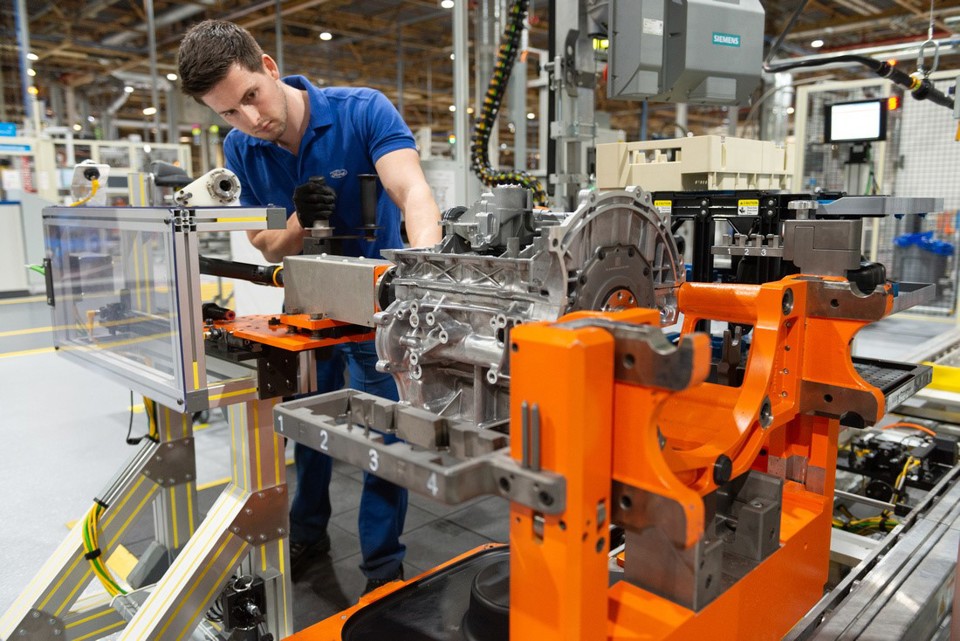The UK automotive sector suffered its most severe downturn in business conditions for six-and-a-half years between April and May, according to a survey published by NatWest and IHS Markit today.
The NatWest UK Automotive PMI® report is based on responses from UK automotive sector manufacturers and benchmarked against equivalent indices for Europe and the rest of the world and found that the headline seasonally adjusted UK Automobiles & Auto Parts PMI registered 43.5 last month.
It is the second month running that the single figure measure of developments in manufacturing conditions has registered below the crucial 50.0 no-change threshold and its decline from 48.9 in April and signalled the sharpest downturn in business conditions across the UK automotive sector since late 2012.
Stephen Blackman, NatWest’s principal economist, said: “Across the world, the automotive industry is facing a range of distinct headwinds, each of which is weakening consumer demand for cars.
“In addition to ‘dieselgate’ there was the introduction of a more rigorous emission testing procedure plus growing unease about the direction of the global economy.
“An unhelpful combination sowing further consumer confusion about their outlook for personal finances and the future of cars.
“Because adding to these ‘one-off’ or cyclical factors, the sector is also undergoing a period of profound structural change, driven by developments in automotive technology, automation and shifts in consumer preferences.
“While vehicle production and sales are down, registrations of Electric and Alternative Fuel Vehicles increased by 13.8% in the year to May, reaching a 6% market share.
“And while 72% of us now drive, more than ever before, we’re driving less (1,400 fewer miles each year on average) compared with 2003.”
Blackman said that automotive jobs created £51 for every hour worked in Q4 2018, almost £16 more than the average.
Few industries outside Finance, IT and heavy industry add more value per hour.
He added: “So, while the sector's current weather is indeed gloomy and the UK’s place in this evolving automotive landscape is not yet set, at least the foundations are good.”
The Society of Motor Manufacturers and Traders (SMMT) reported that UK car manufacturing output declined by 44.5% in April as a result of factory shutdowns scheduled by manufacturers in anticipation of import difficulties resulting from a March 29 Brexit.
A total of 56,999 fewer units were built in extraordinary month after Honda Swindon, Mini Oxford and Toyota Burnaston all temporarily shut their doors.
In total, 70,971 cars rolled off production lines, resulting in a 22.4% year-to-date decline in productivity for the sector as 127,240 fewer cars were built than during the same period in 2018.
The NatWest UK Automotive PMI® report reported – which takes the production of automotive parts into account – found that, aside from a brief upturn during March amid a Brexit-related surge in production volumes and stockpiling, the PMI had signalled softer operating conditions in each month since June 2018.
The downturn in UK automotive sector output, order books and employment in the second quarter of 2019 had been amplified by a payback from extended production schedules in March, it said.
Survey respondents widely commented on softer domestic demand following production stoppages at volume manufacturers and a reversal of stock building across the supply chain.
Looking through the noise of unseasonal production shutdowns, the recent PMI figures indicate the worst period of underlying demand since late-2012.
Export sales were especially subdued in May, with automotive sector manufacturers pointing to the steepest drop in new orders from abroad since April 2009.
Comparisons of the UK Automobiles & Auto Parts PMI data against international benchmarks illustrate that manufacturers have faced declines in order books of a similar scale to those seen across Europe and further afield.
A wider set of challenges are holding back the automotive sector, which are systemic in nature and global in scope.
In fact, the Global Automobiles & Auto Parts PMI figure for May was the lowest since February 2013 and the weakest of all sectors monitored by the IHS Markit data.
Richard Hill, head of automotive and manufacturing, NatWest, said: “We have seen the softening of automotive demand amplified by an escalation of policy uncertainty worldwide. Most notably, diesel emissions regulations, changes to the planned speed of transition to carbon neutrality in Europe and new US-China trade tariffs.
“The resilience of the UK automotive sector is well proven, with a track-record of leading routes to recovery and advancement.
“Manufacturers have faced and overcome ‘perfect storms’ before, most recently in the wake of the 2008/09 global financial crisis.
“The current storm is as significant with different factors at play therefore requiring new and innovative solutions.
“The coming global shift towards electric powertrains is opening up huge rewards for value creation across the supply chain, while the technologies underpinning the future of mobility may create new geographic hubs for industrial innovation.
“It is my firm belief that the UK is well placed to thrive in an environment of technology-driven automotive trends, but we must act fast and think collaboratively to maximize the opportunities ahead.”















Login to comment
Comments
No comments have been made yet.